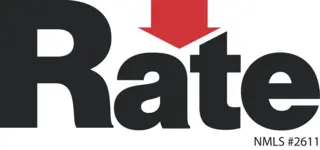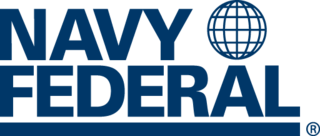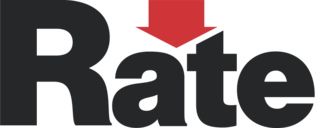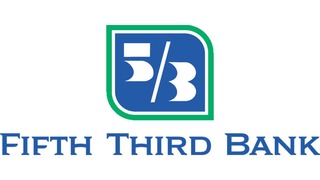7 Best Home Equity Loans of February 2026
* Sample rates and APRs are subject to change. All information provided here is accurate as of January 30, 2026, and may change at any moment.
One of the biggest perks of owning a home is the equity you can build. When you sell, that equity can translate into cash at closing. But you can borrow from that equity while still living in the home, too — using it to pay for home repairs, unexpected medical bills, or even to consolidate higher-interest debts, like credit cards.
Home equity loans and home equity lines of credit (HELOCs) are two tools you can use to turn your equity into cash. According to our research, these are the best home equity lenders currently on the market.
What to know about home equity loans
- Home equity loans turn your home equity into a lump sum of cash you can use however you’d like.
- There are also HELOCs, which work more like credit cards, allowing you to turn your home equity into a credit line you can withdraw from as needed.
- You can get home equity loans and HELOCs from big-name banks, online lenders, credit unions, financial technology companies, and online banks.
- Qualifying standards, loan amounts, property requirements, and other details are not standardized and vary by financial institution.
How we chose our top picks
Our editors and writers reviewed over 60 home equity products and lenders to ensure our list is as comprehensive as possible. We used publicly available data and interviews with lender representatives to verify its accuracy. We then used factors such as interest rates, term options, maximum loan amounts, credit score requirements, and loan-to-value thresholds to assign a score to each lender on a scale of one to five. Below are the top companies that emerged.
Read our full methodology to learn more.
Our Top Picks for Best Home Equity Lenders of February 2026
- PNC Bank: Best Overall
- Figure: Best HELOC
- Connexus Credit Union: Best No-Appraisal Option
- Navy Federal: Best for Military Borrowers
- M&T Bank: Best for Low Rates
- Rate: Best for Investors
- Fifth Third: Best Flexible Rate Lock
- Highest overall score in our review process
- Up to 90% LTV
- Lowest credit score minimum we found
- High loan amounts
- Low intro rate, fixed and variable rate options
- No home equity loans (only HELOCs)
- In-person appraisal is required
- Not available in all 50 states
- Product Types
- HELOC
- Maximum loan amount
- $1 million
- Maximum LTV
- 80% to 89.99%, depending on several factors
- Terms
- 10-year draw periods with 30-year repayment periods; 5 to 30 years for fixed-rate options; 5-year interest-only options
- Interest rates
- Not available
- Credit score minimum
- Over 600, though credit requirements can vary by borrower
- Properties allowed
- Single-family homes, multi-family properties, condos, and mobile homes
Why we chose it: PNC Bank came out on top with a whopping 4.85 out of 5 score, making it the best-rated home equity product among the 60+ we analyzed. The bank offers large loan amounts, low credit score requirements (the lowest we found), and a variety of rate and term options to choose from. Its introductory 0.25% interest rate for eligible properties in low- to moderate-income areas is unbeatable, too.
- Low fixed rates
- Several term options
- Relatively low credit score requirements
- Fast funding time
- Typically, no in-person appraisal is required
- Not available in all 50 states
- Relatively low maximum loan amount
- LTV could be higher
- Product Types
- HELOC
- Maximum loan amount
- $750,000
- Maximum LTV
- 85%
- Terms
- 5, 10, 15, and 30 years
- Interest rates
- Fixed rates starting at 6.30% APR
- Credit score minimum
- 640
- Properties allowed
- Single-family homes, townhouses, planned urban developments (PUDs), most condos, and duplexes. Both primary and secondary residences can qualify.
Why we chose it: Figure, an online financial technology company, has our top HELOC. The line of credit comes with a low fixed interest rate and four term options, ranging from five to 30 years. Its minimum credit score is relatively low at 640, and you typically won’t need an in-person appraisal (the lender usually utilizes Automated Valuation Models, or AVMs, instead). And the best part? Many borrowers get their cash within just five days.
- No in-person appraisal required
- Low interest rates and credit score minimum
- Long draw period on HELOCs
- High LTV maximum
- No 30-year home equity loan options
- Not available in all 50 states
- Requires credit union membership
- Product Types
- Home equity loans and HELOCs
- Maximum loan amount
- Varies by state and borrower
- Maximum LTV
- 90%
- Terms
- 5, 10, and 15 years on home equity loans; 15-year draw and 15-year repayment on HELOCs
- Interest rates
- 4.99% intro APR until Oct. 1, 2026, and 5.49% APR until April 1, 2027, then as low as 7.94% for fixed-rate HELOCs and 8.44% APR for interest-only HELOCs; fixed rates starting at 7.31% APR for home equity loans
- Credit score minimum
- 640
- Properties allowed
- Primary residences, second homes, duplexes, townhomes, and two- to four-unit condos
Why we chose it: Connexus Credit Union is the place to look if you’re hoping to avoid the hassle and headache of an appraisal. You can obtain both home equity loans and HELOCs from the lender, and its low credit score minimum, 90% LTV maximum, and lengthy 15-year draw period on HELOCs are notable as well. You can even borrow against your second home if you have one — something not all home equity lenders allow.
- Offers both home equity loans and HELOCs
- Long draw period on HELOCs
- High maximum LTV
- Several term options
- No closing costs
- Only available to active and retired military, DoD employees and their families
- Credit score requirement could be lower
- No 30-year home equity loan options
- Product Types
- Home equity loans and HELOCs
- Maximum loan amount
- $500,000
- Maximum LTV
- 95% to 100%, depending on the product
- Terms
- 5, 10, 15, and 20 years for home equity loans; 20-year draw and 20-year repayment for HELOCs
- Interest rates
- Fixed, starting at 7.34% APR on home equity loans; variable, starting at 7.00% APR on HELOCs
- Credit score minimum
- 650
- Properties allowed
- Primary residences and second homes, as long as they’re within 50 miles of your primary residence
Why we chose it: Navy Federal’s home equity loans have several standout features that borrowers might find valuable. For those seeking extended access to cash, its HELOC is a good option, offering a 20-year draw period — longer than any other product we analyzed. If you’re hoping to tap a good amount of equity, consider a home equity loan instead, which offers up to a 100% LTV with no closing costs.
- Low interest rates
- Both variable and fixed rate options
- Loan amounts up to $1 million
- No closing costs
- Not available in all 50 states
- High credit score minimum
- Product Types
- HELOC
- Maximum loan amount
- $1 million
- Maximum LTV
- 85.99% for primary residences; 70.99% for vacation homes and manufactured homes
- Terms
- 10-year draw and 20-year repayment periods
- Interest rates
- Intro rate of 5.24% APR for six months; variable rates starting at 5.94% APR after; three fixed-rate lock options available
- Credit score minimum
- 680
- Properties allowed
- Primary residences, vacation homes, condos, townhomes, one- to four-unit properties, and manufactured homes
Why we chose it: M&T Bank’s 5.49% intro rate can save you significantly on interest in the first six months of your loan — especially when considering how high the lender’s loan amounts go (up to $1 million). Borrowers also have three fixed-rate lock options available during their loan term and may elect interest-only payments during the draw period. One more notable detail: There are no application fees, closing costs, or annual fees.
- Investment properties and rentals allowed
- No closing costs
- Low fixed rates
- Low credit score requirement
- Short draw period
- Fairly low maximum loan amount
- Not available in all 50 states
- Product Types
- HELOC
- Maximum loan amount
- $400,000
- Maximum LTV
- 85%
- Terms
- 2 to 5-year draw and 5, 10, 15, or 30-year repayment period
- Interest rates
- Fixed, starting at 6.35% APR
- Credit score minimum
- 640
- Properties allowed
- Primary residences, second homes, investment properties, single-family rentals, condos, and townhomes
Why we chose it: For those looking to cash in on an investment property or rental home, look to Rate. The online lender, formerly Guaranteed Rate, allows you to borrow against primary residences, second homes, investment properties, single-family rentals, and more, and interest rates are fixed, giving you consistency for the entire five, 10, 15 or 30-year term you chose. Most loans require no in-person appraisal.
- Rate lock option lets you choose the number and amount of monthly payments
- Low introductory interest rate
- High LTV value
- No closing costs
- Only available in 12 states, soon to expand to 15
- $95 fee to lock in rate
- Product types
- Home equity loans and HELOCs
- Maximum loan amount
- $500,000
- Maximum LTV
- 90%
- Interest rates
- Rates vary for home equity loans; 4.99% introductory rate for the first six months on a HELOC, then rates starting at 6.75% APR
- Credit score minimum
- Varies
- Properties allowed
- Owner-occupied residences, non-owner-occupied properties, and multi-unit properties
Why we chose it: Fifth Third's flexible rate-lock option allows you to secure a fixed interest rate on the lender's Equity Flexline HELOC, thereby locking in a favorable rate on part or all of the available line of credit. You choose how long you want to lock the rate for and how much you want to pay, which can help lower your monthly costs if you need some wiggle room.
Other companies we considered
TD Bank
TD Bank was a top choice for best overall home equity lender, boasting both a HELOC and home equity loan that were highly rated under our scoring system. The lender offers a variety of term and rate options, and its loan amounts go up to $6 million.
Why we didn't choose it: The only factor holding it back was its limited geographic footprint, which prevents many borrowers from benefiting from its benefits.
Achieve
Achieve is a popular online lender we also considered. Its fixed-rate HELOC is notable, offered in 10, 15, 20 and 30-year terms. The lender also has one of the lowest credit score requirements — 600 — among the companies we considered, making it a good choice for borrowers with less-than-perfect credit.
Why we didn't choose it: The short, five-year draw period could be an issue for some borrowers and its maximum loan amounts are on the lower end, too, especially if you aim to use the cash for debt consolidation — those are limited to $150,000.
Rocket Mortgage
Rocket Mortgage is often ranked as a top mortgage lender thanks to its easy online application process, multiple loan options and high customer satisfaction ratings. They offer loans in all states and may be a good choice for someone seeking an online lender.
Why we didn't choose it: Rocket's home equity products have high credit score requirements (you need a 740 to qualify for a 90% LTV) compared to other lenders we considered, and the company offers no advertised rates with which to gauge your costs. In-person appraisals are also required, which increases the cost of accessing your equity.
SoFi
We also considered online bank SoFi for our list. The lender’s home equity loan offers several term options and loans of up to $350,000 for home improvements or debt consolidation.
Why we didn't choose it: The minimum credit score of 680 is slightly higher than that of some other options we considered, and its interest rates are higher than those of others we analyzed, placing it behind other home equity loans on this list.
What you need to know about home equity loans
Homeowners have accumulated near-record levels of home equity over the past five years, driven by the rapid rise in home prices triggered by the pandemic-driven buying frenzy. Current estimates place the total equity held by American households at approximately $48 trillion — a near-record level.
Equity can be accessed in several ways, but the recent decline in mortgage rates has led to a spike in the demand for home equity loans. Kenon Chen, executive vice president of real estate analytics firm Clear Capital, says that this increased interest is a result of the lock-in effect felt by homeowners who purchased homes during the pandemic, when rates were ultra-low.
"Using your home equity might be a really good way to improve and remodel the home that you're in, because it can still be very challenging in this market," Chen says. Especially, he adds, with home prices still rising and mortgage rates holding above 6%.
If you’ve never tapped your home equity before, it can be a time-consuming process. Here’s how these loans work and how you can borrow from your equity successfully.
What is a home equity loan?
A home equity loan is a type of second mortgage — meaning it’s a loan you take out in addition to your main mortgage. It has its own terms, interest rate, and monthly payments. And, like your first mortgage, it uses your home as collateral, so if you fail to make payments, the lender can foreclose on your home.
HELOCs are a type of second mortgage, too. However, these two loans work very differently, even though they tap the same equity. A home equity loan works just like a regular loan you’d use to buy almost anything – you get a lump sum at closing to use for whatever expenses you want to cover.
With a HELOC, however, you’re actually turning your equity into something more like a credit card. Instead of receiving a lump sum payment that you have to repay at a set pace over a set amount of time, you can borrow up to the maximum amount of the HELOC, just like with a credit card, and just like with a credit card, you only pay for what you borrow.
How does a home equity loan work?
Home equity loans let you borrow from your home equity — or the portion of your home that you actually own. Typically, lenders will let you borrow up to 80 to 90% of your home’s value, minus the balance on your existing mortgage loan.
So, if your home is worth $300,000 and you have a mortgage balance of $150,000, you can expect to be able to tap between $90,000 and $120,000, depending on your lender’s limits.
Once you receive your cash, home equity loans work just like your primary mortgage. You’ll pay it off with set monthly payments over a long period, ranging from five to 30 years.
HELOCs have a slightly different repayment strategy. With these, you’ll usually make interest-only payments for the first few years of the loan, then full principal-and-interest payments once your credit line’s draw period ends.
Differences between HELOCs and home equity loans
HELOCs are less standardized than home equity loans, so a wide range of payment options is possible. This is why it’s so important to understand exactly what the terms of your HELOC are before you sign on the dotted line.
In general, a HELOC works like this: your bank gives you a maximum amount that you’re allowed to borrow from your home’s equity, and treats it much like a credit card. You may even get a debit card you can use with your HELOC. You have a set period during which you can borrow money from your credit line, typically from five to 15 years. You may be permitted to pay just the interest during this period, depending on your loan.
Once this draw period ends, the amount of your loan is fixed. So, if you were given a $100,000 HELOC but used only $75,000 during your draw period, your final loan amount would be $75,000. At this point, your loan payment is calculated to ensure that the principal is paid in full before the end of your loan term. You’re then expected to pay a full interest and principal payment for the rest of the loan’s life.
As to which option may work best for you, Chen says it will depend on the purpose behind accessing your equity.
"HELOCs tend to give you more flexible options when you're not exactly sure of the project," he says. "The confidence of a fixed rate with the home equity loan makes sense for folks [who] already have a sense for what they want to do."
How to choose a home equity lender
Choosing the right home equity lender is critical to achieving your goals. Not only do qualifying requirements vary by lender, but so do loan amounts, product types, and more. Be aware that each option has its pros and cons that must be carefully considered.
Determining the right option for your needs "starts with an understanding of your current position, an understanding of what your current home value is, Chen says.
When choosing where to get your home equity loan, make sure to consider the following:
- Eligibility requirements, including credit score minimums and appraisal requirements.
- Property types allowed, especially if you’re considering borrowing against a second home, vacation property, or investment home (these are harder to find lenders for).
- Loan amounts and loan-to-value ratios, since these determine how much you’ll be able to borrow.
- Fees, rates, and repayment term options, since these factors will determine the overall cost of borrowing and the total interest you'll pay.
You should consider customer reviews and ratings, too, as well as any regulatory actions or lawsuits against the company. You can find these by searching for the lender in the Nationwide Mortgage Licensing System (NMLS) database.
Pros and cons of home equity loans
Pros | Cons |
|---|---|
Allows you to turn your home equity into cash | Adds a second mortgage payment to your household |
Funds can be used for any purpose | Puts your home at risk of foreclosure if you don’t make your payments |
Interest may be tax-deductible if you use the money to improve your house | Usually come with upfront closing costs and fees |
Typically have lower rates than other types of consumer borrowing products | Could put you upside down on your house if it loses value |
Alternatives to home equity loans
Home equity loans and HELOCs aren’t the only way for homeowners to borrow cash.
If you’re looking for other financing options — and aren't sure which one makes the most sense for your situation — a mortgage professional or financial advisor can help you weigh the pros and cons. In the meantime, here are several alternatives worth considering:
Cash-out refinance
A cash-out refinance replaces your current mortgage with a new one with a larger balance. You receive the difference between the two balances as a lump-sum payment at closing. Fair warning, though: This loan replaces every aspect of your existing loan, including its rate and payment. This might be an ill-advised move if rates have increased since you took out your current mortgage.
Personal loan or credit card
If you want to avoid using your home equity altogether, you can consider an unsecured personal loan or even a credit card. Just note that these typically come with much higher rates than home equity products (and mortgages in general), so they might not be a good option if you need to borrow a large amount or expect to carry the balance for an extended period.
Reverse mortgage
For eligible older homeowners, a reverse mortgage can provide another way to access their home equity. With these, the lender pays you out of your equity — either as a lump sum, monthly or as a line of credit. You won't repay anything until you permanently move out or sell the house. If you pass away and your heirs wish to keep the house, they will need to arrange repayment of the reverse mortgage. Government-backed reverse mortgages are available to homeowners 62 and older, although some lenders offer proprietary options for homeowners as young as 55.
Latest home equity news
Home price growth has stabilized over the past few months, resulting in a slowdown in home equity gains. In fact, prices have fallen year-over-year in some real estate markets. That loss in value, although slight, has reduced the amount of equity some homeowners hold.
Despite the loss, equity levels in general remain well above where they were in 2020, before the pandemic led to a surge in buyer demand that sent home prices soaring. The most recent estimate from the St. Louis Federal Reserve indicates that the total amount of equity held by American homeowners declined from about $38.8 trillion to $34.4 trillion between the second and third quarters last year — still close to record highs.
Considering the amount of equity most homeowners hold, and taking the recent decline in mortgage rates, which are nearly a full percentage point lower than they were just a year ago, into account, accessing home equity could be an attractive option as a source of cash if needed.
Home equity loan FAQs
What are the negatives of a home equity loan?
What is the monthly payment on a $50,000 home equity loan?
Is a home equity loan tax deductible in 2025?
Is it a good idea to take equity out of your house?
Methodology
We evaluated dozens of banks, credit unions and online home equity lenders nationwide. We gathered data on product terms, qualifying requirements, interest rates, availability, and other benefits to identify the best ones. We scored lenders on a one-to-five scale based on five categories: interest rates (30%), loan terms (20%), credit score minimums (20%), loan-to-value ratio (15%) and maximum loan amounts (15%).
We considered companies that offered competitive interest rates, as these are among the primary factors influencing the cost of financing a home purchase.
- Companies that offered longer payback periods and, in the case of HELOCs, longer draw periods were assigned higher scores.
- We prioritized companies with lower credit score requirements because they make products available to a broader range of borrowers.
- Higher scores were assigned to companies with higher loan-to-value ratios, thereby increasing the pool of borrowers eligible to use the products offered.
- We assigned companies that offered higher loan amounts higher scores than their competitors.
Summary of our top picks for the 7 best home equity loans of February 2026
- PNC Bank: Best Overall
- Figure: Best HELOC
- Connexus Credit Union: Best No-Appraisal Option
- Navy Federal: Best for Military Borrowers
- M&T Bank: Best for Low Rates
- Rate: Best for Investors
- Fifth Third: Best Flexible Rate Lock













